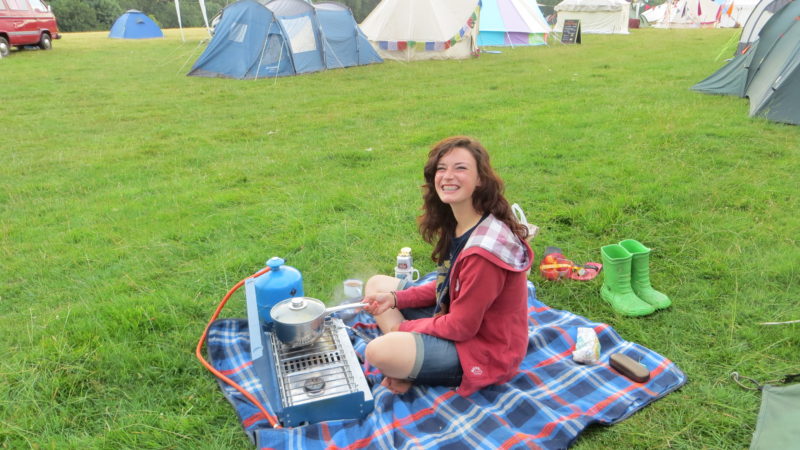Ellie Rowe died at a festival after mixing ketamine and alcohol. Drug testing and counselling like at Boomtown this year are big steps forward in preventing more tragedy.

In August 2013, a happy, lively 18-year-old called Ellie Rowe came to Boomtown festival.
She arrived on the Thursday, had a large can of beer – and then took some ketamine. She didn’t know the mixture of the two would kill her.
Five days before she had been at the Green Gathering in Chepstow, with rainbows in the skies over the rivers Wye and Severn. A leaflet from her family asks a poignant question: “How did she go from rainbows to the coffin so quickly?”
I came to Boomtown festival this year, too. Unlike in 2013, there was drug testing on site, provided by not-for-profit organisation The Loop. Having provided drugs testing at Secret Garden Party this year, they broke their own records, testing 1,100 samples.
But it’s the education they provide that could be the game-changer: with every drugs test, they provide one-to-one awareness intervention, and vital information on harmful drugs in circulation for the festival.
That counselling, which almost certainly would include noting that mixing alcohol and ketamine can be fatal – as in Ellie’s case – could be a lifesaver.
In a session at the festival’s Speaker’s Corner, I spoke to Ellie’s mother, Wendy Teasdill, and sister Iona, about Ellie – and what can be done to prevent more drugs deaths in the UK, after a year which saw those deaths hit record levels.
Wendy, a yoga teacher – including at festivals such as Glastonbury – told me the issue was one of knowledge:
“Ellie didn’t know that the alcohol would kill her.
“We don’t know what we don’t know.”
And one of those issues is that “multi-drug use is the problem.” It is the combination of drugs which often matters the most.
Which is why initiatives like The Loop – which appear to come under strong pressure from authorities – matter so much. As she notes: “We can’t tell people not to take drugs.”
The real issue is: “If people are going to take drugs, let them know what they’re taking.”
It’s a message that’s hard to share – and the pain is still raw. “I don’t want to be standing here.” But it is one which needs spreading.
After the talk, I asked what Wendy thought of projects like The Loop. And while it wasn’t the purity of the ketamine which was an issue, it’s clear the counselling people receive as part of it may have made a big difference.
“Ellie would have gone to the drugs testing.
“If the government could, it would be great to roll out nationally. We need to open a conversation, and to take the mental stigma out [of talking about drugs].”
While she is not arguing decriminalisation is the answer, she’s clear that “we need to have a conversation about it.”
This is about learning lessons – and one of those is that “drugs are fact.”
Yet there is very little open education about drugs in the UK. People are scared of having an honest discussion – one which recognises that people like to get high, and that because of that, it needs to be made much safer.
“The most helpful for me is my part opening that conversation and breaking down barriers.”
Her advice to other festival goers? “Look after yourselves and learn.”
Hopefully, learning about drugs won’t be stigmatised in future – but will be a core part of festivals in the UK and across Europe.
Wendy, Iona and the rest of the family scatter Ellie’s ashes across the world. Now they’re trying to spread a call across the world, too: we need an honest conversation about drugs.
You can support drug testing organisation The Loop here.
Josiah Mortimer is Editor of Left Foot Forward. Follow him on Twitter.
To reach hundreds of thousands of new readers we need to grow our donor base substantially.
That's why in 2024, we are seeking to generate 150 additional regular donors to support Left Foot Forward's work.
We still need another 117 people to donate to hit the target. You can help. Donate today.



